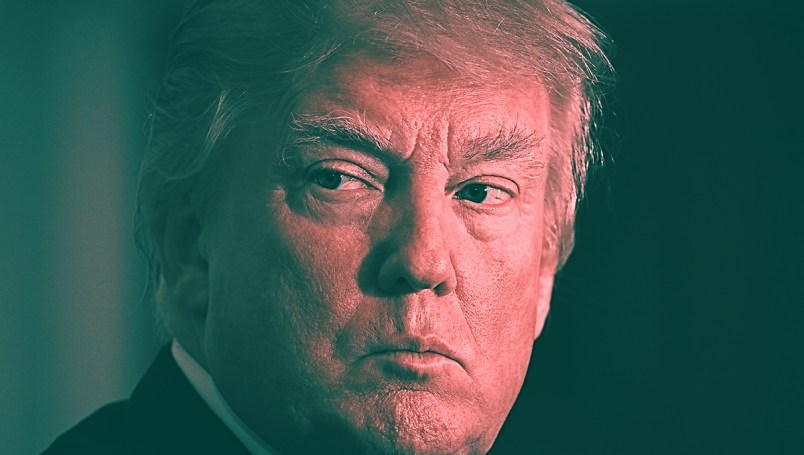“Meritless.”
“Frivolous.”
A “conspiracy theory” that “hinges on wordplay.”
This is how the Department of Justice described the efforts by its legal foes to connect the Trump administration’s push to add a citizenship question to the 2020 census to the partisan motives of a deceased GOP operative.
But comments last week by President Trump suggest that his administration and the operative, GOP gerrymandering guru Thomas Hofeller, did in fact share a similar goal: a new method of redistricting that would exclude non-citizens from the count used to draw legislative districts.
Hofeller secretly studied the effect of such an overhaul — in an unpublished 2015 analysis that concluded that it would be “functionally unworkable” without a census citizenship question — and said it “would be advantageous to Republicans and Non-Hispanic Whites.”
The Department of Justice vehemently denied there was any connection between Hofeller’s memo and Commerce Secretary Wilbur Ross’s decision last year to add the question, despite Hofeller being the first person to raise to the Trump transition team the issue of the census citizenship question.
But on Friday, when asked why he was trying to re-add the question to the census, President Trump told reporters, “You need it for Congress, for districting.”
Beyond denying that Hofeller played a role in getting the question included on the 2020 census, the Justice Department specifically dismissed the idea that the redistricting argument played a role in Ross’ reasoning when considering the question.
The Justice Department argued to a federal judge in a June 10 court filing that it was “absurd” to impute Hofeller’s motives onto Ross and said that Hofeller’s motives were not “legally relevant to establish the intent of Secretary Ross in deciding to include the citizenship question, or to whether he allegedly conspired to deprive anyone of a constitutional right.”
“[N]ot even Plaintiffs allege that Secretary Ross was aware of Hofeller’s unpublished 2015 study or its ideas; their discriminatory-motive theory depends entirely on the subjective desires of others,” the Justice Department argued. The administration was opposing the request by the challengers in the Maryland census case that the judge reconsider whether the citizenship question was added with a discriminatory intent.
At a June 18 hearing in front of the judge in the Maryland case, a DOJ attorney argued that Louisiana’s attorney general had told Ross that census citizenship data would be useful for redistricting. The attorney said that Ross “didn’t adopt Louisiana’s rationale in deciding to reinstate the citizenship question on the census.” He pointed to Ross’ memo claiming that he was adding the question for Voting Rights Act enforcement, a rationale the Supreme Court has since ruled was a pretext.
“It would be implausible then for Secretary Ross to affirmatively have chosen not to accept the views of Louisiana yet secretly adopt essentially the same views reflected in an unpublished study that there is no evidence the secretary has ever seen or been aware of,” DOJ attorney Josh Gardner said.
The same argument was made by Solicitor General Noel Francisco himself in a letter to the Supreme Court on June 20.
“The administrative record itself contains a request to add the question in part for that purpose,” Francisco said, referring to the Louisiana attorney general’s lobbying of Ross that he add the question for redistricting purposes. “Yet the Secretary did not rely on that rationale in his decisional memorandum,” Francisco said, adding that it was “implausible that the Secretary would affirmatively choose not to adopt the reasons provided by the Attorney General of Louisiana in a public letter and discussions memorialized in the administrative record,” while “secretly” adopting Hofeller’s reasons.
Francisco said in the letter to the Supreme Court that the “conspiracy theory” the administration wanted the question for the same reason that Hofeller did was “nonsensical even on its own terms.”
Those claims will make it awkward if the administration — in trying to re-add the question — states that it does in fact want it added for “districting” reasons, as Trump said on Friday.






